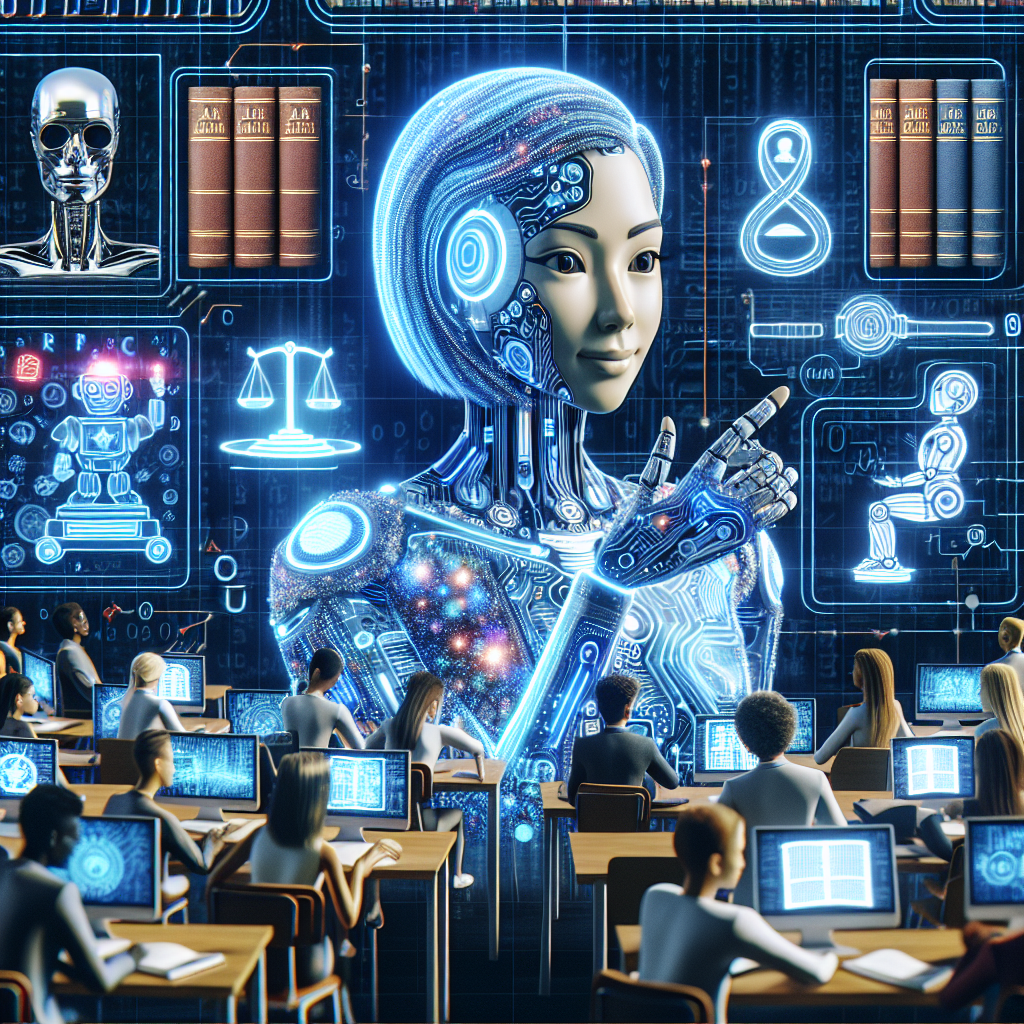The legal field is one that is constantly evolving, with new laws, regulations, and case precedents being established on a regular basis. As such, it is crucial for legal professionals to stay up-to-date with these changes in order to provide the best possible representation for their clients. This is where artificial intelligence (AI) comes in.
AI has the potential to revolutionize legal education in a number of ways. From providing more personalized learning experiences to helping students gain a deeper understanding of complex legal concepts, AI has the power to transform the way that lawyers are trained. In this article, we will explore the potential of AI in legal education and discuss how it can benefit both students and educators in the legal field.
One of the key ways that AI can enhance legal education is through the use of personalized learning experiences. By using algorithms to analyze the learning styles and preferences of individual students, AI can tailor educational materials to meet the needs of each student. This can help students learn more effectively and retain information better, ultimately leading to better outcomes in their legal careers.
Additionally, AI can help students gain a deeper understanding of complex legal concepts by providing real-time feedback and explanations. For example, AI-powered tutoring programs can analyze a student’s responses to legal questions and provide immediate feedback on their understanding of the material. This can help students identify areas where they need to improve and focus their efforts on mastering those concepts.
Furthermore, AI can help legal educators create more engaging and interactive learning experiences for their students. By using AI-powered simulations and virtual reality tools, educators can bring complex legal concepts to life in a way that is both informative and entertaining. This can help students stay engaged and motivated to learn, leading to better outcomes in their legal studies.
In addition to enhancing the learning experience for students, AI can also benefit legal educators by automating routine tasks and providing valuable insights into student performance. For example, AI-powered grading systems can quickly and accurately assess student work, freeing up educators to focus on more meaningful interactions with their students. Additionally, AI can analyze student data to identify trends and patterns in learning outcomes, helping educators tailor their teaching strategies to better meet the needs of their students.
Overall, the potential of AI in legal education is vast and promising. By leveraging the power of AI, legal educators can create more personalized and engaging learning experiences for their students, ultimately leading to better outcomes in their legal careers. As the legal field continues to evolve, AI will play an increasingly important role in shaping the future of legal education.
FAQs:
Q: How can AI enhance the learning experience for legal students?
A: AI can enhance the learning experience for legal students by providing personalized learning experiences, deeper understanding of complex legal concepts, and more engaging and interactive learning experiences.
Q: Can AI help legal educators in their teaching?
A: Yes, AI can help legal educators by automating routine tasks, providing valuable insights into student performance, and helping educators tailor their teaching strategies to better meet the needs of their students.
Q: What are some examples of AI-powered tools that can be used in legal education?
A: Examples of AI-powered tools that can be used in legal education include personalized learning platforms, tutoring programs, grading systems, simulations, and virtual reality tools.
Q: How can legal professionals stay up-to-date with AI developments in the legal field?
A: Legal professionals can stay up-to-date with AI developments in the legal field by attending conferences, workshops, and webinars on AI in legal education, as well as by reading relevant articles and publications on the topic.

